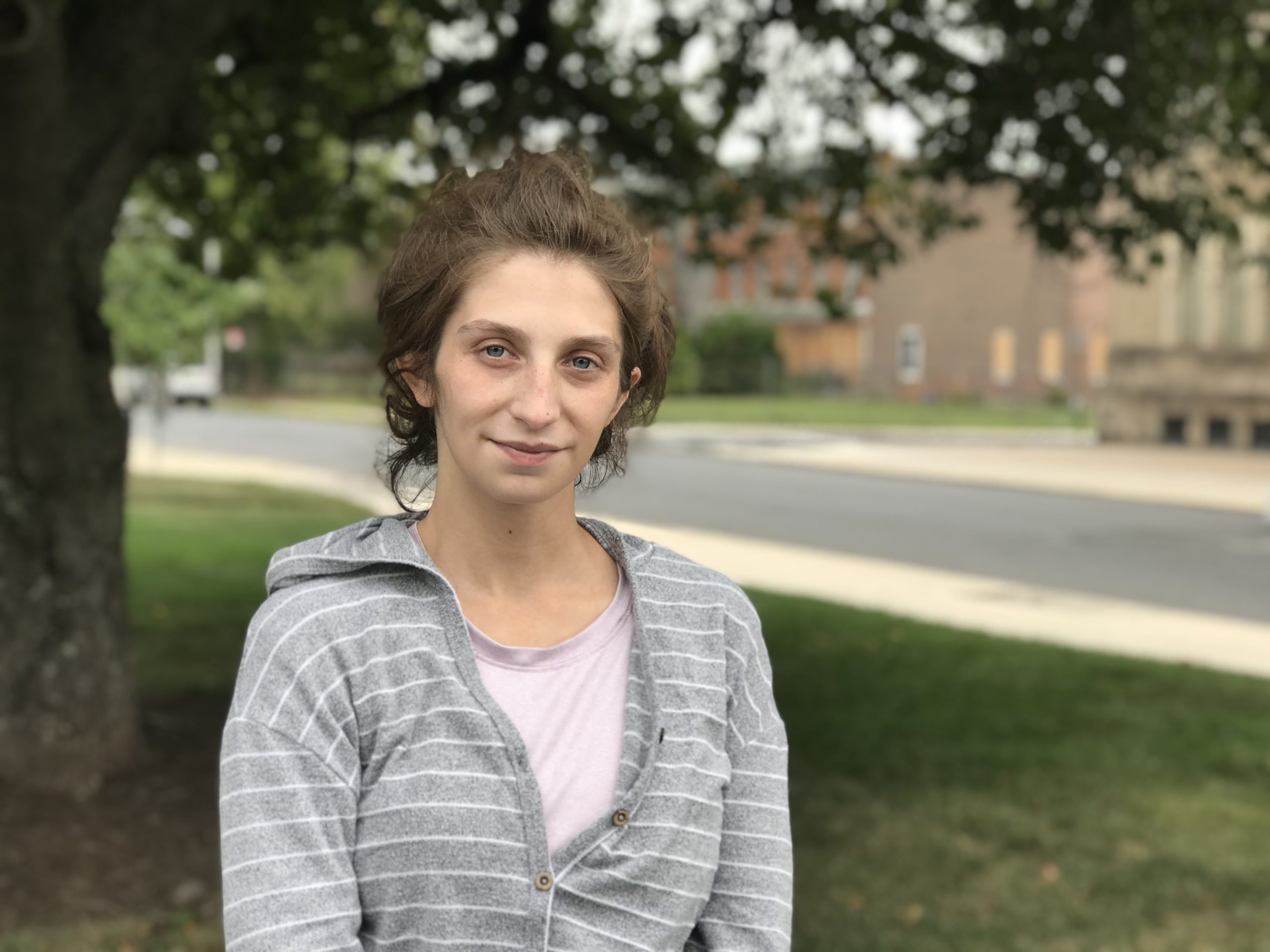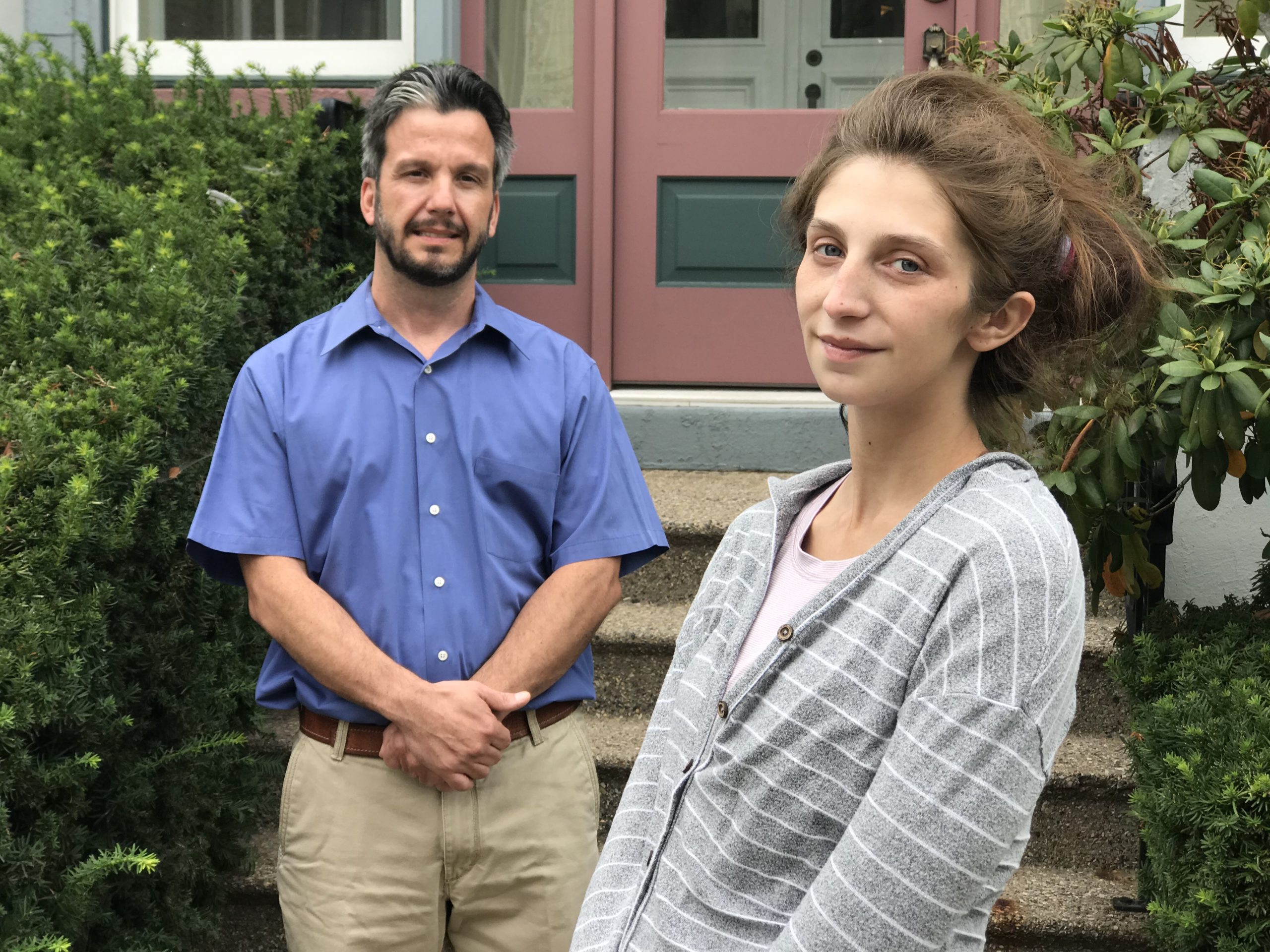Medication-assisted treatment helps mother overcome addiction and put family first
 Depression drove Britney into addiction.
Depression drove Britney into addiction.
“I was so depressed I just wanted to numb all my feelings. At one point, I didn’t even want to live any more,” she said. “I started with pills. Then heroin. I was using for seven and a half months – four or five bags of heroin a day.”
An unplanned pregnancy was the wake-up call she needed to begin recovery.
“I already wanted to get help. I didn’t want to keep doing this for the rest of my life,” she said. “So when I found out I was pregnant, it was scary. It was like a sign from God. I didn’t want to hurt my baby, and I needed that driving force to free me from the way I was living for a long time.”
Immediately, she began reaching out to addiction-recovery programs.
“Every place I called, no joke, said: ‘we can’t get you in now’ or ‘we have too many people as it is’ or ‘our wait time is six weeks, minimum,’” she recalled.
The pandemic’s impact
Indeed, the pandemic sent opioid deaths surging, as isolation and stress drove more people to drugs to cope. At the same time, many recovery programs closed facilities or cut services in response to the lockdown and resulting economic crisis.
At Penn Medicine Princeton Medical Center, where Britney gave birth in June, someone suggested she reach out to Catholic Charities, Diocese of Trenton. Catholic Charities has a variety of addiction-recovery programs, all of which stayed open and fully operational through the pandemic. Services are available in-person and remotely through telehealth.
Within a day Britney was enrolled in Catholic Charities’ Project Free, an intensive outpatient recovery program based in Mercer County. There, she began Medication-Assisted Treatment, or MAT, which is the use of FDA-approved medications in combination with evidence-based behavioral therapies. MAT has been proven to significantly reduce addiction and cravings, prevent relapses and re-establish healthy brain functioning. Catholic Charities received a state grant last summer to coordinate MAT services county-wide, with the goal of getting more people on the road to recovery.
Now nearly four months into her recovery, Britney is on an MAT drug that is safe for breastfeeding mothers. Her newborn son spent a few weeks in neonatal intensive care to make sure he had no lasting problems, but he’s home and thriving now. Britney attends a women-only addiction-recovery support group three days a week and also does individual counseling at Catholic Charities.
Finding strength in others
 She credits MAT with helping her stay successful in recovery.
She credits MAT with helping her stay successful in recovery.
“I don’t have any cravings. This really works for me. Not everyone is the same way – they have to do what works for them,” she said. ”But now, I feel really strong. The group counseling and one-on-one sessions at Catholic Charities also play a major role in my sobriety. Being in a supportive group of women who have been through similar situations and give each other strength makes me feel amazing about every step I’ve taken to continue my sobriety. We can discuss anything that bothers us, our triggers and ways we can prevent relapsing.”
Jim Keashon, Project Free’s supervisor (pictured, right), said another ingredient to the program’s success is its “whole-person” approach. Program staff assess all of a patient’s needs and strive to break down any barriers to treatment to ensure long-term stability. That’s why Project Free and other Catholic Charities addiction recovery programs provide transportation and childcare if needed. The programs also have bilingual staff and serve people regardless of whether they have health insurance.
Britney’s fiancé also is in recovery, and both see their baby as a blessing sure to keep them firmly on the road to recovery.
“I wake up to my son every morning. He’s such a motivator for me,” Britney said. “My recovery is number 1, along with raising him. We’re a family now, and we have to look out not just for us, but for our son. I see great things ahead now. I never want to go back to my rough road of using, because I know my son needs his mother, and I want to watch him grow into the amazing man I know he will be one day.”
Subscribe for more news
For more information on Project Free, call program Supervisor Jim Keashon at (609) 396-4557, ext. 2437, or Dana DiFilippo, Catholic Charities communications, at [email protected] or (215) 756-6277 (cell).
To subscribe to our blog posts and news releases, fill out the fields below.

